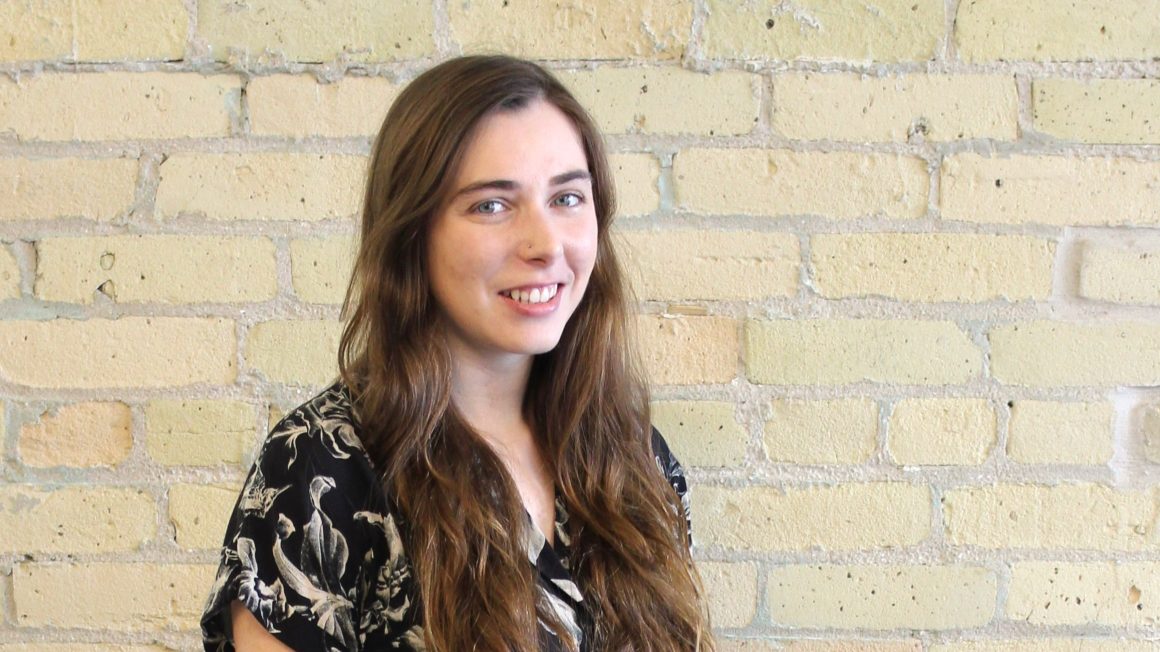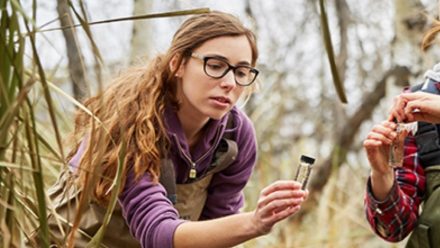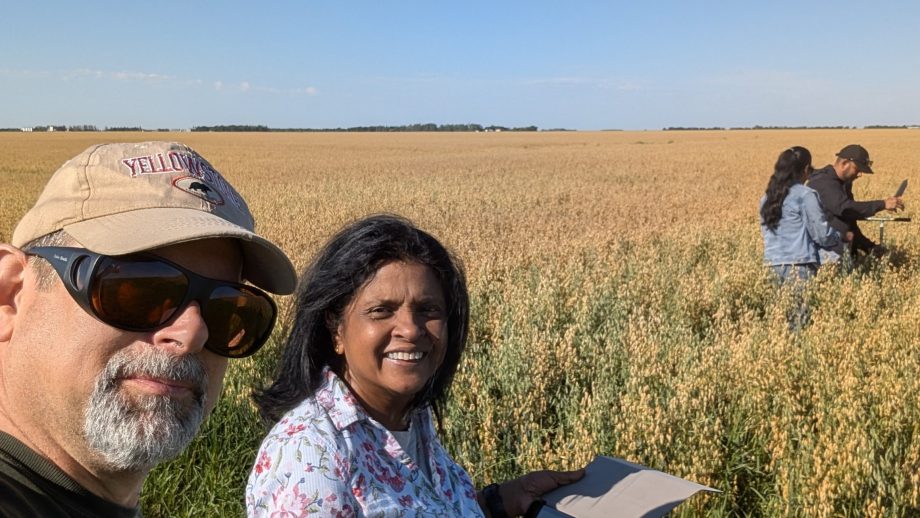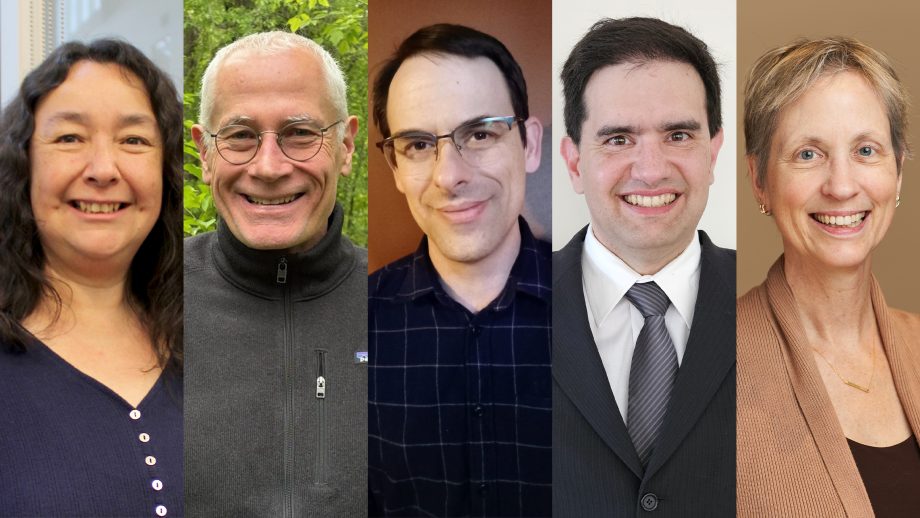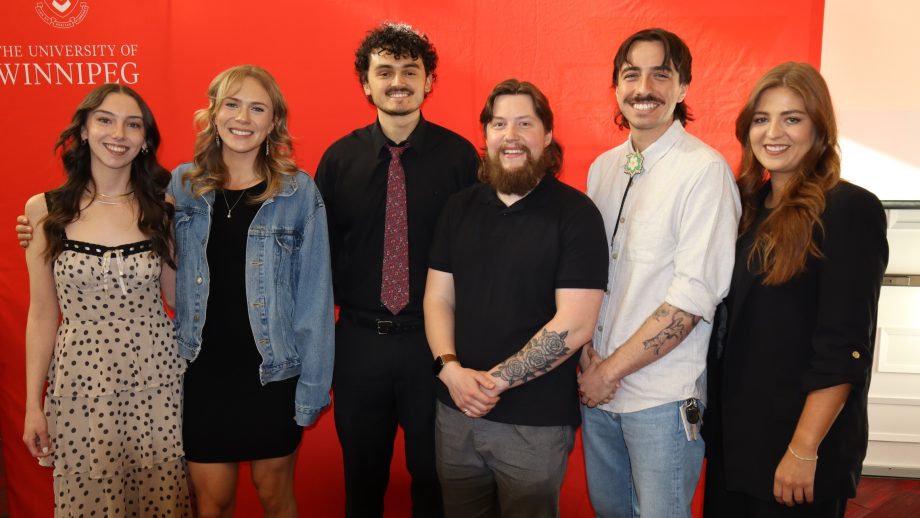Someone can have all the right tools to fix a broken lawnmower, but those tools are of little use if they don’t understand how an engine works. According to University of Winnipeg alumna Emily Kroft (BSc Hons 19), the same rule applies to fixing a changing climate.
It’s integral, she believes, to ensure future generations understand how climate policy works. Kroft says although many young people are “highly educated, in the workforce, and well positioned to take active roles in sustainability,” many lack basic knowledge, such as which government departments are responsible for which aspects of sustainability.
It’s policy that allows us to make sustainability a reality.
Emily Kroft
“Without comprehension of how to navigate the gnarled policy landscape, it is unrealistic to expect young people to significantly move the needle on climate policy,” said Kroft. “They’re normally expected to participate in climate conversations without being taught the policy side of it first.”
Kroft is changing that through her work as Water Policy and Youth Engagement Officer with IISD Next, an initiative of the International Institute of Sustainable Development (IISD). The program addresses knowledge gaps by giving young sustainability advocates a “boost of systems know-how” so they can “initiate real policy-level change in the climate space,” Kroft said.
“Without policy, sustainability would just be an idea without tangible action,” she explained. “It’s policy that allows us to make sustainability a reality.”
The IISD Next program consists of two parts. First, the Sustainability Certificate Program provides a series of online webinars on policy change, sustainability and the economy, and Sustainable Development Goals. Second, customized programming can be created in partnership with youth-led sustainability organizations, such as educational events or special training.
Kroft said she hopes her work with IISD Next will demonstrate that “when information is made available to young people, they are capable of participating in complex sustainability conversations.”
Efforts awarded
Kroft’s work with IISD Next is already being recognized. Last month, she was a recipient of the 30 Under 30 Award from Corporate Knights. The award recognizes leaders who are working on making the planet a better place through a sustainability lens, and includes an annual list of the Top 30 Under 30 Sustainability Leaders in Canada.
Kroft said she was really excited to learn she had made the list.
“Sometimes, it’s not easy to tell in the day-to-day of things whether your work is really making an impact,” she said. “This was a positive reinforcement that the work we’re doing on this project really is helping.”
Dr. Nora Casson, Canada Research Chair in Environmental Influences on Water Quality, said she is “absolutely thrilled” for Kroft, who “fully embodies” the criteria for the award.
“My job is unbelievably rewarding because you work with students like Emily, who are just right at the brink of taking off in their lives,” said Casson. “They have all of these skills they have developed in university, so much energy and enthusiasm, and they’ve found the thing that they’re really passionate about.”
Education applied
Dr. Casson said there is “a direct link between what students learn at UWinnipeg and the job Emily has now” with IISD Next. Because the Environmental Studies and Sciences program is interdisciplinary, students come out with a well-rounded set of skills, Dr. Casson said.
“Sometimes students can be really, really good at measuring methane in ponds, which is wonderful and we need to know that,” Dr. Casson said. “But the link to how to talk about that to policy makers, and how to engage with decision makers, politicians, and the media, can be less clear. I think making that link is one of the strengths of our undergraduate program here.”
Kroft agrees, noting small class sizes gave her opportunities she wouldn’t have had elsewhere.
“For me, as an Honours student, I was actually leading the data collection process for my thesis, as opposed to just being an assistant to a grad student,” Kroft said. “This meant that all the project management responsibilities were mine in addition to actually taking and processing samples. This gave me skills that I have benefited from even up until now.”
Kroft hopes to see the IISD Next program expand to include youth facilitators who can teach workshops in languages other than English. In the meantime, she hopes more people support and appreciate young people in sustainability programs.
“It’s not reasonable to leave behind complete environmental degradation and then ask the next generation to fix it for themselves,” Kroft said. “By including youth in sustainability work, together with older generations, we can better ensure cross-generational accountability for what the future looks like.”

